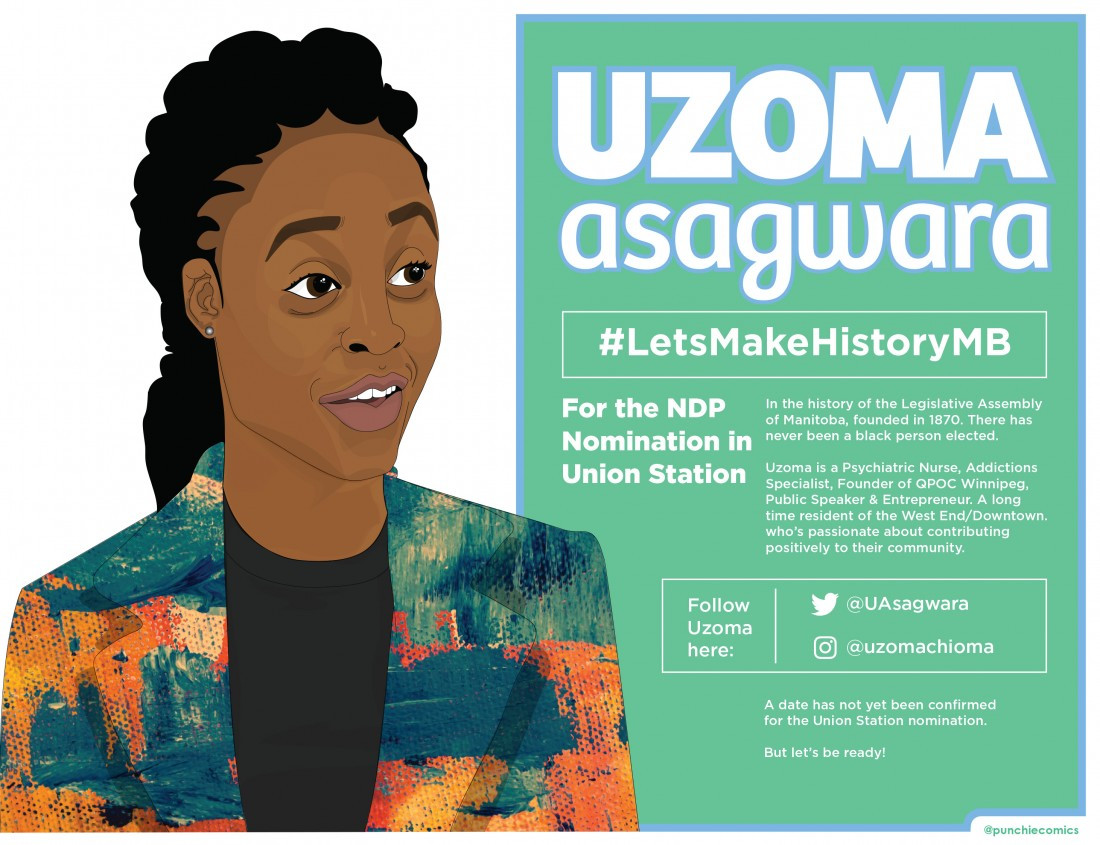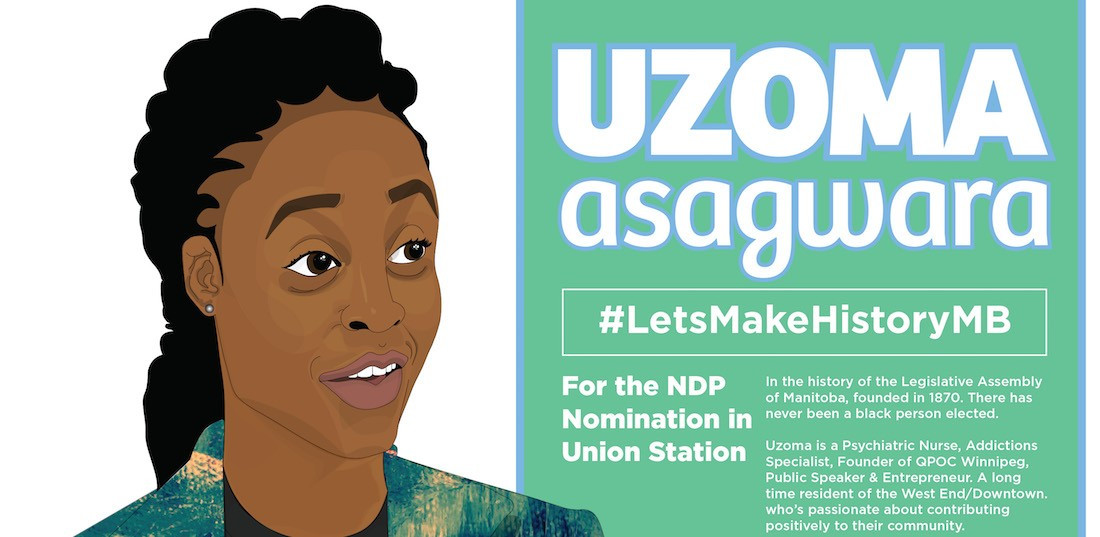Ushering in a new era
Is a representative political arena an antidote to political apathy?
The face of politics is quite literally changing.
With election season ahead of us, campaigning has paved the way for a number of exciting candidates from diverse backgrounds.
At the federal level, Leah Gazan, a lecturer within the Faculty of Education at the University of Winnipeg from Wood Mountain Lakota First Nation, is running for the NDP nomination for Winnipeg Centre.
For next year’s provincial election, Uzoma Asagwara, a psychiatric nurse, addictions specialist and founder of QPOC Winnipeg, has announced their intention to run for the provincial NDP nomination for Union Station, a new constituency.
Historically, much of the Canadian political domain has been regarded as reserved for a select few. Those representing haven’t always, and still continue to be, less representative of the whole of Canadian society.
In a country where the government publicizes the idea that “diversity is our strength,” the composition of the vast majority of it is hardly reflective of that. Women only make up 26 per cent of the House of Commons. The seats filled by those in the Manitoba Legislative Assembly – predominantly by those who are white and male—are hardly a portrait of Manitoba at large.
The essence of representation lies in everyone being accounted for. When minority interests are overridden by a “majority” that only accounts for a select number of people, we must question what “representative democracy” truly means.
Voter apathy is real. It’s especially real among the young. With just over half of those aged 18 to 24 voting in the 2015 federal election, democratic engagement among young adults is quite the statistical disappointment, at least when it comes to showing up to the ballot box.
This is not to say that the youth of today are inherently politically apathetic. In fact, quite the opposite may be true. Publications like Teen Vogue are increasingly replacing the likes of winged-eyeliner tutorials and exclusive interviews with boy bands with politically fired op-eds and an exclusive interview with former U.S. attorney general Loretta Lynch.
If the interest young people have in politics is of a great enough magnitude to transform entire publications, why are so few showing up to vote?
Perhaps the lack of voter turnout among youth isn’t a result of a lack of interest, so to speak. Perhaps young voters are simply fed up with the fact that much of the political domain looks nothing like the cities we live in. How are the youth of tomorrow to aspire to take action, or even run for office one day, if those from underrepresented backgrounds have few elected officials to look up to?
Supporting the vision of diversity among political candidates offers a voice to not just one, but many. Eliminating the idea of barriers in traditionally exclusive positions of power offers hope for a more equitable playing field for the next generation of politicians.
With Winnipeg’s own political stage becoming increasingly occupied by candidates from backgrounds that have not historically been as represented in Canadian politics, this hope is becoming more and more tangible.
Maybe the key to reviving political interest among youth is supporting a political arena as diverse as our cities.
Engagement, after all, is an antidote to apathy.
Cierra Bettens studies politics and collects stories on Treaty 1 territory. She encourages you to register to vote if you have not already done so.
Comic by Hely Schumann
Published in Volume 73, Number 23 of The Uniter (March 28, 2019)







